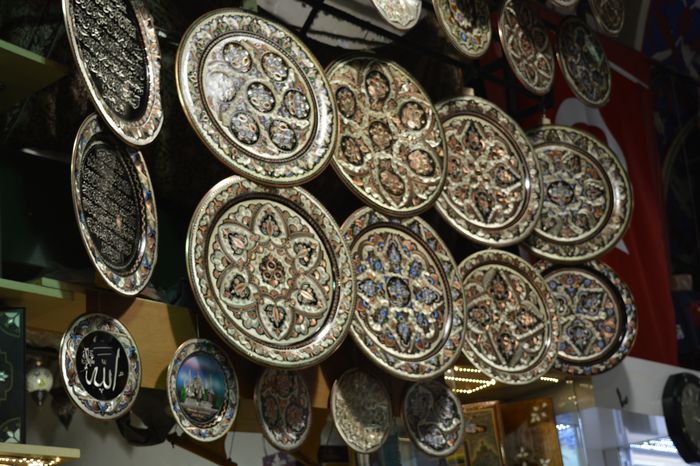Constantine had no wish to spend his brief holiday listening to the caterwauling of priests. But the two women had backed him into a comer and he had either to agree or to spend the rest of the holiday knowing that each time he looked at either of them he could read their thoughts. Besides, in some way he didn’t yet understand, it had become important for him to gain the favor of a slip of a girl he had never seen until a few hours before.
The meeting place of the Christians in Drepanum was an unimpressive building that appeared to have been used as a store. It had none of the magnificence of the temples of Jupiter, patron deity of Rome, with which Constantine was familiar, or even the considerably more austere shrines of Mithras, at which many of the soldiers worshiped.
The room was filled with benches in orderly rows, most of them already occupied by worshipers. At one end was a simple altar, actually little more than a table covered by a cloth upon which had been placed a plate, also covered with an embroidered linen cloth, a goblet and a flagon of wine. Behind the table was a cross of hammered silver, easily the most expensive object in the room, with a single candle burning before it.
Nor were the worshipers any different from those he would have seen in a Roman temple, Constantine decided. A number of them he recognized from previous visits to Drepanum as townspeople. Others wore the somewhat ruder garments of serfs from the surrounding countryside who tilled the soil belonging to the land owners. The three took their seats near the back of the room and shortly afterwards the priest Minervina had called Theognis of Nicaea came in through a door at the rear of the building. He was a tall man with the delicately chiseled features of a Greek scholar and mystic, surmounted by a high forehead and graying hair.
The priest’s white robe was ornamented only by a dalmatic of rich cloth, draped about his neck. Upon it was embroidered in gold a strange pattern which appeared to be made up of the Greek letters ichthus but in an odd arrangement that spelled no word with which Constantine was familiar. The letters were of varying height, those in the center being taller than those at the end, and the whole formed somewhat the outline of a fish.
IESOUS CHRISTOS THEOU UIOS SOTER
Constantine was about to ask Helena the meaning of the strange acrostic, when he noticed at the foot of the hammered cross of silver a highly polished board into whose surface had been burned in Greek with some hot instrument: IESOUS CHRISTOS THEOU UIOS SOTER And even with his somewhat limited knowledge of Greek, he recognized the words, “Jesus Christ, Son of God, Saviour,” as the source of the acrostic.
Read More about Naz arenes appearances to his followers







